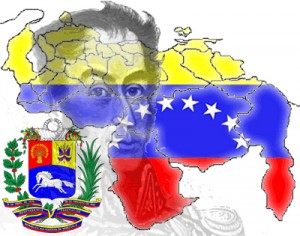 This variety of Caribbean Spanish, with numerous similarities to the Spanish of Puerto Rico, the Dominican Republic and Cuba, came to the land of the hallaca (or “hayaca”, which is also accepted by the Royal Spanish Academy), with origins in African and indigenous languages, at the hands of the Spanish conquerors (mostly from Andalucía and the Canary Islands). It also has Italian and Portuguese influences and some subtle touches of French.
This variety of Caribbean Spanish, with numerous similarities to the Spanish of Puerto Rico, the Dominican Republic and Cuba, came to the land of the hallaca (or “hayaca”, which is also accepted by the Royal Spanish Academy), with origins in African and indigenous languages, at the hands of the Spanish conquerors (mostly from Andalucía and the Canary Islands). It also has Italian and Portuguese influences and some subtle touches of French.
Characteristics by region
- Caracas: here we find the central Venezuelan Spanish, and therefore, that which is used in the country’s media.
- Zulia: the only region in the countrywhere the “vos” form is used.
- Andes: Here “usted” is used, not “vos”.
- Isla Margarita: In this area, the language is more unified due to the large tourist population. It is more informal than in Caracas.
Some examples of the linguistic influence
- From Italian: “école cua” (phonetic) = here it is
- From African languages: “chévere” = cool, nice
- From indigenous languages: “guayoyo” (type of coffee)
Distinct Characteristics
• In rural areas, words are shortened. So,words like “madre” or “papá” become “mai” (or “mae”) and “pai”, respectively.
• As with Colombians, Costa Ricans and Cubans, they use diminutives; to form them, they add the suffix “ico/a” to nouns: “gatico”.
• Anglicisms abound: “happy hour”, “lifting”, “celebrity”, among many others, are very popular.
General Characteristics
Venezuelans are renowned for being sociable and extroverted, and they express friendship through words related to family ties, and colloquialisms.
Some expressions
- “¿Qué pasó, papá?” The father figure is fundamental in Venezuelan society, that is why there are so many expressions that make mention of this important figure, although they do refer to the “father” as such: “Venga, papito” (for children), “Vaya, papa” (without tilde), “Cuídese, padre”. In this group, we can also include “¿Qué hubo, compadre?”, with roots in the bonds made after baptism, but not necessarily because this link exists between the speakers (they could just be friends).
- “¿Pendiente de una vuelta?” = Would you like to go for a walk?
- “No le pares” = pay no attention
- “Dale pues, si va” = sure, OK
- “Toma Ubicatex” = get it together, behave (said as one recommends a medication)
- “Estar limpio” = have no money
Some words
- Vaina = problem, although in truth, it hasmany meanings (“¿Cómo está la vaina?” = How is everything going?). It is also used as an interjection and/or a filler (“¿Qué vaina es esa?” = What is this?)
- Burda = very, a lot (derived from “burdo”, slight exaggeration)
- Háblame = Hello / How can I help you?
- Épale = Hello!
- Pana = friend
- Rico = good
- Ricarda = tasty, used for attractive women
- Riquiquín = tasty, used for attractive men
- Yeyo = an unspecified health problem
- Chamo(a) = young person or adolescent
- Cartelúo = very good (comes from the expression “eso está cartel”)
- Chévere= excellent, good, nice (Venezuelan for excellence)
If you are lucky enough to spend some time in Venezuela, don’t miss the opportunity to have a “rica” conversation with a “pana”who will make you have a “chévere” time…





